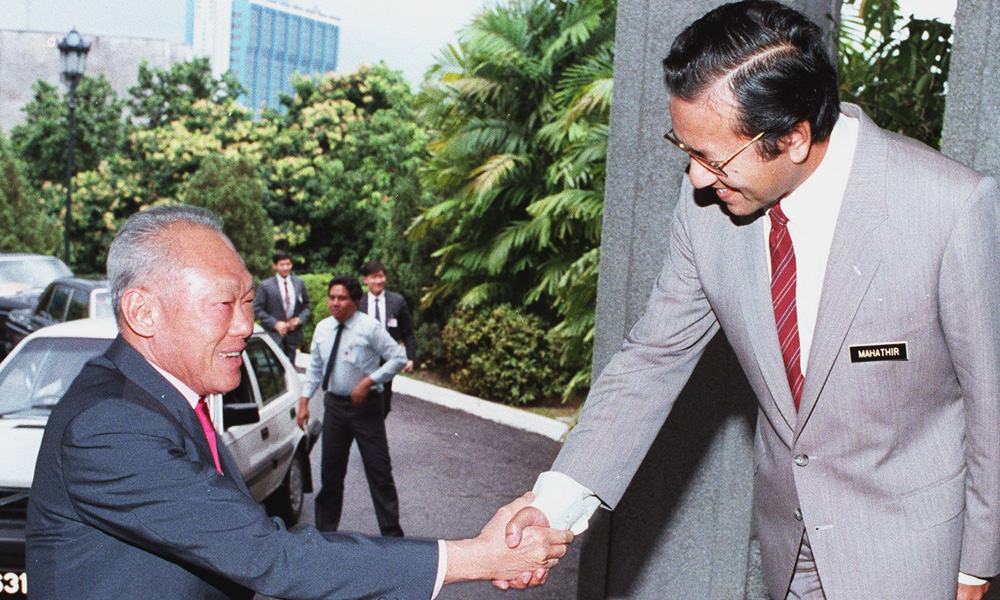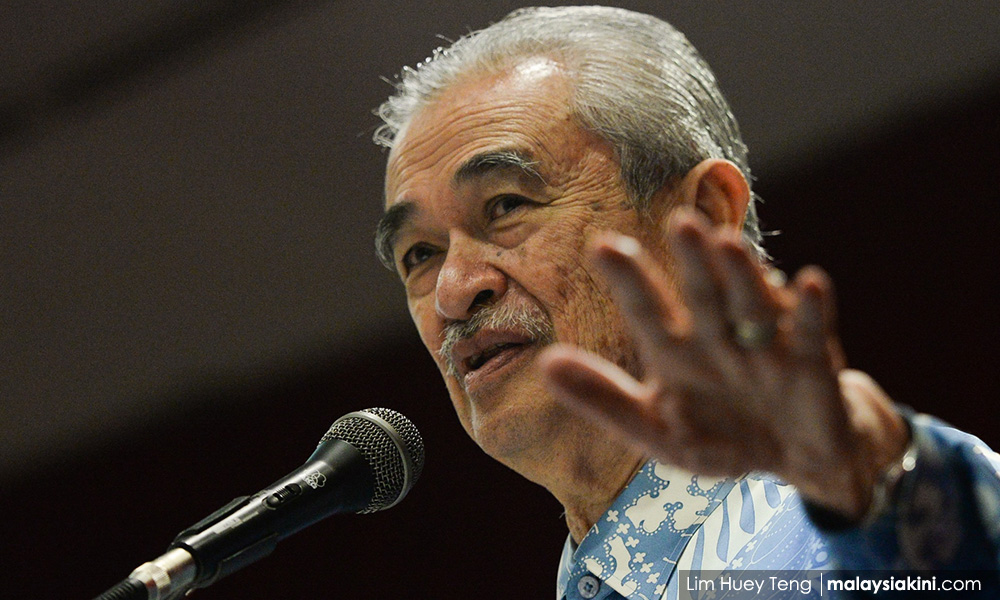Abrasive. Power-hungry. Dogmatic. Ambitious. Cunning. Ruthless. Patriotic. Obsessive. Loyal. Passionate… I could go on. Dr Mahathir Mohamad, who cut a sprightly figure when he turned 94 in July, is all these and more.
Well, there was another leader – his southern neighbour – who fit all these adjectives snugly. Lee Kuan Yew was so similar to Mahathir, it’s a surprise they never got along. Well, didn’t somebody say similar poles hate each other?
I like both of them for different reasons. Nearly every time I hear Mahathir speak or read his speeches, I can’t help but smile. He’s got this bitchy sense of humour that tears into an opponent without leaving visible scars.
This is what he said about Lee in the book, Conversations with Mahathir Mohamad by American author and columnist Tom Plate.
“The fact remains that he is a mayor of Singapore. This is something he doesn’t like. He wants to be big, you see, and he feels that we took away his opportunity to lead a real country.”
This is Mahathir in his element, floating like a butterfly, stinging like a bee. Somehow you never get angry with the man as the wicked humour he delivers is more a jab or a poke, that masks a Muhammad Ali-like killer punch.
Behind that poke is always a serious message that tells you how he feels about his opponent. In this case, Mahathir was referring to Lee’s unrealised ambition to be the prime minister of a larger country – Malaysia.
The back story is Lee was so overcome by emotion he wept in front of TV cameras when Singapore had to leave Malaysia two years after joining it. Some say it shattered his dream of becoming the prime minister of Malaysia one day.

But Lee’s hits were direct and most times delivered below the belt. Once, Lee told journalists from Singapore’s The Straits Times: “Mahathir is a thoroughly destructive force. He is a very smart man, but his mentality is still stuck in the 1970s.
“In the long-term, this shit-stirring will hurt his nation… I know this in my heart and I am sure of it.” Ouch.
Lee was a man possessed when it came to hitting back at Mahathir during the nadir in Malaysia-Singapore relations when both were prime ministers in the 1980s.
During his meetings with Singapore editors, I could sense his fury at Mahathir’s rhetoric to cut off the water supply to his southern neighbour, make it difficult for Singapore aircraft to fly via Malaysian airspace, and divide Singaporeans with his appeal to pro-Malay sentiments.
Lee used Mahathir’s anti-Singapore rhetoric to shore up his political base by invoking fears of a Mahathir bent on destabilising the citizenry.
He got the Singaporean media to publish article after article, especially from the Malay and Chinese press up north, to revive his strategy of creating a siege mentality, and get Singaporeans to rally round him and his government.
It was a strategy devised and executed masterfully by the Israelis to instil fear of the danger of invasion by the Arab neighbours.
Once, when Lee visited Malaysia, he made an unusual offer to Mahathir when the Malaysian prime minister complained about Singapore’s military build-up. Lee said he would open all Singapore’s military bases to Malaysian officers.

Mahathir nearly fell for it; he was quick enough to realise the offer was a trap to scare Malaysian officers with the advanced equipment Singapore had. The visit never happened.
Is the same kind of game being played today? Mahathir has accepted an invite to be an official guest, together with Brunei’s sultan and Indonesia’s president, to attend Singapore’s National Day parade on Aug 9.
For the first time in a long while, the republic is showcasing its military hardware in full flourish on that day. Will Mahathir be cowed?
The one thing you cannot help but admire about both strongmen was their single-minded and jingoistic commitment to make their countries thriving and leading lights in this part of the world.
They took slightly different paths to their destination; one took a somewhat circuitous route by taking an overtly pro-Malay stance, the other went for the jugular with economic growth as the mantra.
Both crushed their opponents by jailing them and destroying their families in the process. The media was made to dance to their tune.
Internationally, Lee scored better. Singapore outperformed Malaysia in playing a clever behind-the-scenes role of an ombudsman by positioning itself as the first pit stop for both the West and China to get to know the other better.
Statesperson Lee had the ear of both and used this to great advantage in strengthening his country’s global ambitions.
Mahathir made one wrong political move. He gave up his position as prime minister, choosing Abdullah Ahmad Badawi (photo) to take charge of the ship, hoping the new man will continue with his policies.

That didn’t happen and an angry Mahathir manoeuvred his successor’s political demise. Then he thought Najib Abdul Razak would do his bidding and got him to take over.
That failed miserably, and Mahathir is back as prime minister in a Malaysia that’s in a deeper mess than when he had left it after his first innings.
Lee was very shrewd. He stepped down as prime minister, but continued to pull the strings of power as senior minister and minister mentor.
And Singapore has continued to do well, although there are some who believe relying on the Lee playbook may not help Singapore ride the storm of disruption in a globalised world.
The storm enveloping Malaysia seems to be more dangerous. A leadership tussle over a sex video involving Mohamed Azmin Ali, the deputy of Anwar’s Ibrahim’s PKR, has all the hallmarks of the dirty and nasty tactics Mahathir used to get rid of his No 2.
It pains me to read about the ugly manoeuvrings going on up north in a country that has so much potential to do well. It’s a leadership implosion the country has to worry about, not a challenge from the opposition.
I hope saner minds will prevail as the country rides another difficult period in its tortuous history.
WRITER: PN BALJI has 40 years’ experience in print, TV and online journalism in Singapore. He worked in five newspapers and was editor of two of them. He spent three years as a co-host of a TV discussion programme and was the founding editor of an online newspaper. His just-published book, The Reluctant Editor, is a bestseller.
This piece was originally carried by Between the Lines, a free weekday newsletter that summarises the top daily news in Malaysia and provides the context to what’s happening
– M’kini




No comments:
Post a Comment
Note: Only a member of this blog may post a comment.